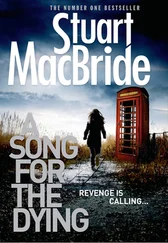Guy Kay - A Song for Arbonne
Здесь есть возможность читать онлайн «Guy Kay - A Song for Arbonne» — ознакомительный отрывок электронной книги совершенно бесплатно, а после прочтения отрывка купить полную версию. В некоторых случаях можно слушать аудио, скачать через торрент в формате fb2 и присутствует краткое содержание. Год выпуска: 1992, Жанр: Фэнтези, на английском языке. Описание произведения, (предисловие) а так же отзывы посетителей доступны на портале библиотеки ЛибКат.
- Название:A Song for Arbonne
- Автор:
- Жанр:
- Год:1992
- ISBN:нет данных
- Рейтинг книги:5 / 5. Голосов: 1
-
Избранное:Добавить в избранное
- Отзывы:
-
Ваша оценка:
- 100
- 1
- 2
- 3
- 4
- 5
A Song for Arbonne: краткое содержание, описание и аннотация
Предлагаем к чтению аннотацию, описание, краткое содержание или предисловие (зависит от того, что написал сам автор книги «A Song for Arbonne»). Если вы не нашли необходимую информацию о книге — напишите в комментариях, мы постараемся отыскать её.
A Song for Arbonne — читать онлайн ознакомительный отрывок
Ниже представлен текст книги, разбитый по страницам. Система сохранения места последней прочитанной страницы, позволяет с удобством читать онлайн бесплатно книгу «A Song for Arbonne», без необходимости каждый раз заново искать на чём Вы остановились. Поставьте закладку, и сможете в любой момент перейти на страницу, на которой закончили чтение.
Интервал:
Закладка:
There were footsteps in the corridor behind her. The wet-nurse, she thought, quickly concerned. She was about to lean out from the window seat but the steps halted just before where she sat, and Rosala heard a woman's voice she did not know, and then a man's. She remained motionless in the shadows of the alcove and realized, after a moment, that the voices were speaking of murder.
"It is to be done neatly and in silence," the woman said nervously in accented Arbonnais. "She told me to say as much."
"I tend not to make a great deal of noise with a blade," the man answered, amused. His voice was deep and assured.
"You do not understand. This must not be traced to her. The body will have to be disposed of, and no one the wiser. She said it would be best if he didn't even see you, lest he cry out."
"Ah. She will be keeping him occupied? Oblivious to all else in the world? Does this sort of thing excite her? Will I have other duties, after?"
"You need not be vulgar," the woman said primly.
The man laughed softly. "Fear not. I will only follow your mistress's lead. If she wants to taste blood she will have to ask. He must see me, though, or there is no point in this. He must know who is killing him."
"He might call for help. We cannot allow—"
"He will not. This is not a man inclined to call for help. And there will not be very much time, I promise you. Come, which door? There is a ghost to be assuaged, and I have tarried."
They went by her then, shadows behind them and then before as they passed under the wall torch in the empty corridor. Rosala shrank back against the window. The joglar in the great hall below was singing of endless love and unrequited desire. Neither the man nor the woman turned as they went by. She knew neither of them. At a doorway a little distance down their footsteps stopped. Holding her breath, Rosala leaned out slightly. She saw the man smile then and draw a knife from his belt. He opened the door and slipped inside, moving with silent, feline grace. The door closed behind him. There came no sound at all from within the room. The woman hesitated for a moment and Rosala saw her make a quick, warding sign before hurrying along the corridor and down another flight of stairs at the far end.
It was silent in the hallway, save for the distant voice of the singer drifting up from below, mournful and melodious. Rosala brought her hands up to her face. There was a horror about to happen. She could scream, she knew, to summon aid, and perhaps it would be in time, more likely not. She was not a woman inclined to scream. She took a steadying breath, struggling to decide what to do. Her first, her only duty, was to Cadar, to guard her own safety as his sole shelter in the world. There was no disputing that, or what choice it compelled.
Rosala de Savaric stood up, looked back along the corridor to where her new-born son was sleeping and resolutely began walking the other way. She was her father's daughter, and would not sit silent in a window seat or turn her back and let a man be murdered in a castle that had given her haven.
As it happened, she knew whose suite of rooms the man with the blade had just entered. The mingled scents of spices and perfume had been redolent in the corridor since that guest had arrived. The priestesses and the wet-nurse had been talking about her obsessively for two days. Rosala paused outside that doorway only long enough to look back one last time towards Cadar's room, then she squared her shoulders in a gesture that had also been her mother's, and she opened Lucianna Delonghi's door and stepped inside.
Daufridi and his escort left the inn first. Bertran gave them some time and then they rode back to Lussan themselves, passing under the trees and then along the west bank of the river beneath the blue moon. Just inside the gates of the city the duke insisted on parting from the three of them.
He looked at Blaise, hesitated, and then smiled wolfishly in the moonlight. "I neglected to mention it to you—the baron of Castle Baude arrived this morning. I thought I would say hello to Mallin before retiring for the night. Shall I convey your good wishes?"
Even with what he had learned from Ariane de Carenzu last summer, there was still something disconcerting to Blaise about Bertran's indefatigable energy in this regard. With all that had just happened, with grim, huge discussions of his country's fate scarcely behind him, the duke of Talair was of a mind to go wandering in the night.
Blaise shrugged. "Please do," he murmured. "And to Soresina, if you should happen to see her."
Bertran's smile flashed briefly again. "Don't wait up. Sunrise will see me homeward, when the morning breaks." He always said that: the refrain of one of his own songs from years ago. He turned his horse and was gone into the shadows.
"Should he be alone?" Rudel asked. "Under the circumstances?" There was something extraordinary about that, too, Blaise thought: the man raising the question had tried to kill Bertran three months ago.
"He won't be," Valery replied quietly, looking down the lane where his cousin had ridden. "Watch." A moment later they saw three horsemen canter out from the darkness and set off after the duke. In their brief transit through the torchlight by the city walls, one of them waved briefly; Valery lifted a hand in return. Blaise recognized the livery and relaxed a little: the countess of Arbonne was evidently taking pains to guard her wayward duke.
"Do they ride into the bedrooms, too?" he asked.
Valery chuckled and twitched his horse's reins. "In the bedrooms," he said, "we must assume he can take care of himself."
Rudel laughed. "Does he know he's being watched?"
"Probably," said Valery. "I think it amuses him."
"Most things seem to," Rudel assented.
Valery turned in the saddle to look at him. "Most things, but not all. Don't be misled, not if you're joining us. What you heard him say to Daufridi this evening, how he dealt with him, was the real thing. Much of the rest, what he's doing now, is part of a long escape."
There was a short silence. "A successful one?" Rudel Coreze was an extremely clever man. His tone was thoughtful.
Blaise was remembering that stairwell in Castle Baude again, a flask of seguignac passing back and forth. "I don't think so," he said quietly. Thai's why he works so hard. I think," he said to Valery, "that he should have killed Urté de Miraval a long time ago."
Valery's face was hidden in the darkness as they rode under a covered archway spanning the street. "So do I," said Bertran's cousin finally. They came out into blue moonlight again, slanting down past the steep roofs of houses. "But we aren't poets, are we, and there was a child." An old, tired anger was in his voice; embers raked over but not dead.
"This," said Rudel, "is going to have to be explained to me."
"Later," said Blaise. "Too tangled for tonight."
They rode on. Some of the streets by the market were lit, but there were no great crowds. The Lussan Fair, as all the other fairs, was not like a carnival. For one thing, it lasted for a month, and not even Bertran de Talair, Blaise thought, would survive that much revelry. The fairs were for doing business, with some nocturnal activities for spice.
Rudel, perhaps predictably, seemed to be thinking about just that, as they came up to the two lanterns burning outside the honey-coloured walls of the Talair palace and walked their horses to the stables at the back. The ostler came sleepily forward from the shadows and took their mounts. The three of them went back around to the front doors. Under the lanterns again, Rudel had an expression on his face that Blaise knew well.
"There is an amusing tavern I know," he said, "just beyond the Portezzan quarter of the market. Are we really going to put the night to bed, or is there some life left in us? I would enjoy buying a drink for the pretender to the crown of Gorhaut."
Читать дальшеИнтервал:
Закладка:
Похожие книги на «A Song for Arbonne»
Представляем Вашему вниманию похожие книги на «A Song for Arbonne» списком для выбора. Мы отобрали схожую по названию и смыслу литературу в надежде предоставить читателям больше вариантов отыскать новые, интересные, ещё непрочитанные произведения.
Обсуждение, отзывы о книге «A Song for Arbonne» и просто собственные мнения читателей. Оставьте ваши комментарии, напишите, что Вы думаете о произведении, его смысле или главных героях. Укажите что конкретно понравилось, а что нет, и почему Вы так считаете.










